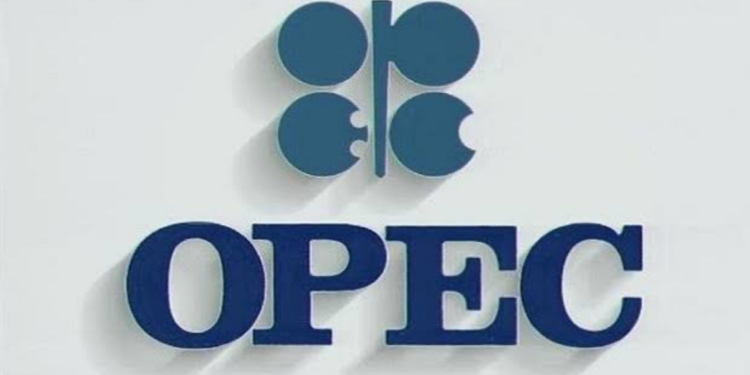The federal government of Nigeria has set an ambitious target to produce approximately four million barrels of oil per day (bpd) and 10 billion cubic feet (bcf) of gas by the year 2030.
This goal is especially driven by the recent incentives for offshore oil and gas investments, which were introduced by President Bola Tinubu.
The announcement came in a statement signed by Mrs. Olu Verheijen, Special Adviser to the President on Energy and head of the Energy Office of the Presidency, who is also overseeing the rollout of various reforms.
Verheijen emphasized the importance of these reforms, particularly in light of Nigeria’s struggles to attract investments in its deepwater oil and gas sector.
She pointed out that since the approval of Nigeria’s last major deepwater project, the Egina project, in 2013, international oil companies (IOCs) operating in Nigeria have redirected more than $82 billion in deepwater investments to countries that they see as more competitive.

She added, “Over the next few years, they plan to spend another $90 billion to develop deepwater oil and gas projects.
This is the pool of funds that our reforms are targeting, and we intend to unlock between $5 billion to $10 billion of new investments in Nigeria in the near- to medium-term.”
Nigeria has faced ongoing challenges in meeting its oil production quota set by the Organisation of Petroleum Exporting Countries (OPEC).
The government has attributed this to both large-scale oil theft and a lack of significant investment in the sector.
However, since President Tinubu took office in May 2023, a series of reforms have been introduced to enhance the competitiveness of Nigeria’s oil and gas industry.
These reforms are specifically designed to lower costs and shorten the timeframes for conducting business in the sector, which remains the country’s most significant source of foreign exchange.
These changes are part of three key presidential directives issued in February 2024.
According to Verheijen, these reforms are expected to create thousands of new jobs, boost foreign exchange earnings, increase tax revenues, and strengthen Nigeria’s macroeconomic stability.
One major step taken by President Tinubu includes the approval of new fiscal incentives.
These incentives include a Value Added Tax (VAT) waiver on products such as gas, diesel, electric vehicles, and clean cooking equipment, as well as tax credits for new investments in the exploration and production of deepwater oil and gas.
These incentives, which are set to take effect immediately, are aligned with the Presidential Gas for Growth Initiative.
This initiative is aimed at accelerating the development of Nigeria’s natural gas resources, promoting the use of gas over fossil fuels in transportation, ensuring energy affordability, and bolstering the country’s overall energy security.
Despite the urgency of the global energy transition, a staggering 76% of Nigeria’s natural gas reserves remain undeveloped.

During the unveiling of the reforms, Osagie Okunbor, Chairman of the Oil Producers Trade Section (OPTS), expressed optimism about the government’s efforts, saying, “The level of coordination and policy coherence we’re seeing today is unprecedented. The accelerated pace of reforms over the past year has renewed our interest in Nigeria.”
Rosario Osobase, Chairperson of the Petroleum Contractors Trade Section (PCTS), echoed similar sentiments, noting, “For the first time in a long while, we’re seeing positive momentum in our industry in Nigeria, thanks to the presidential directives and the government’s deliberate efforts to engage the service sector.”
Despite these optimistic developments, Nigeria’s oil production continues to face setbacks.
A recent survey conducted by Reuters revealed that Nigeria’s oil output dropped by 40,000 bpd in September, leading to a decline in exports.
This reduction was part of a broader decrease in OPEC oil output, which fell to its lowest level in 2024.
The survey attributed the decline primarily to unrest in Libya and improved compliance by Iraq with OPEC+ production cutbacks.
In Libya, the drop in oil production was a result of political unrest and a standoff over control of the country’s central bank, which temporarily affected oilfield operations.
Libya experienced a supply cut of 300,000 bpd, but production is expected to rebound following the resolution of the dispute.
Iraq, on the other hand, is gradually improving its adherence to OPEC targets, though it still exceeded its quota by 90,000 bpd.
For Nigeria, the 40,000 bpd production decline represents a significant challenge. The country has been striving to increase its oil production in an effort to boost foreign exchange inflows, but theft, underinvestment, and logistical issues have impeded progress.
If the production shortfall is confirmed by the Nigerian Upstream Petroleum Regulatory Commission (NUPRC), it will mark yet another setback in Nigeria’s efforts to meet its production targets.
A Report survey tracks oil supply to the market based on a variety of data, including shipping information from external sources, tracking firms like Kpler and Petro-Logistics, and input from oil companies, OPEC, and consultants.
The survey findings underline the difficulties that Nigeria and other OPEC nations face in maintaining stable production levels amidst geopolitical and economic challenges.
Overall, the Nigerian government remains committed to turning the tide in the oil and gas sector, driven by a comprehensive set of reforms.
The aim is not only to increase oil production and meet OPEC quotas but also to attract substantial foreign investment, stimulate job creation, and lay the foundation for long-term energy security.































